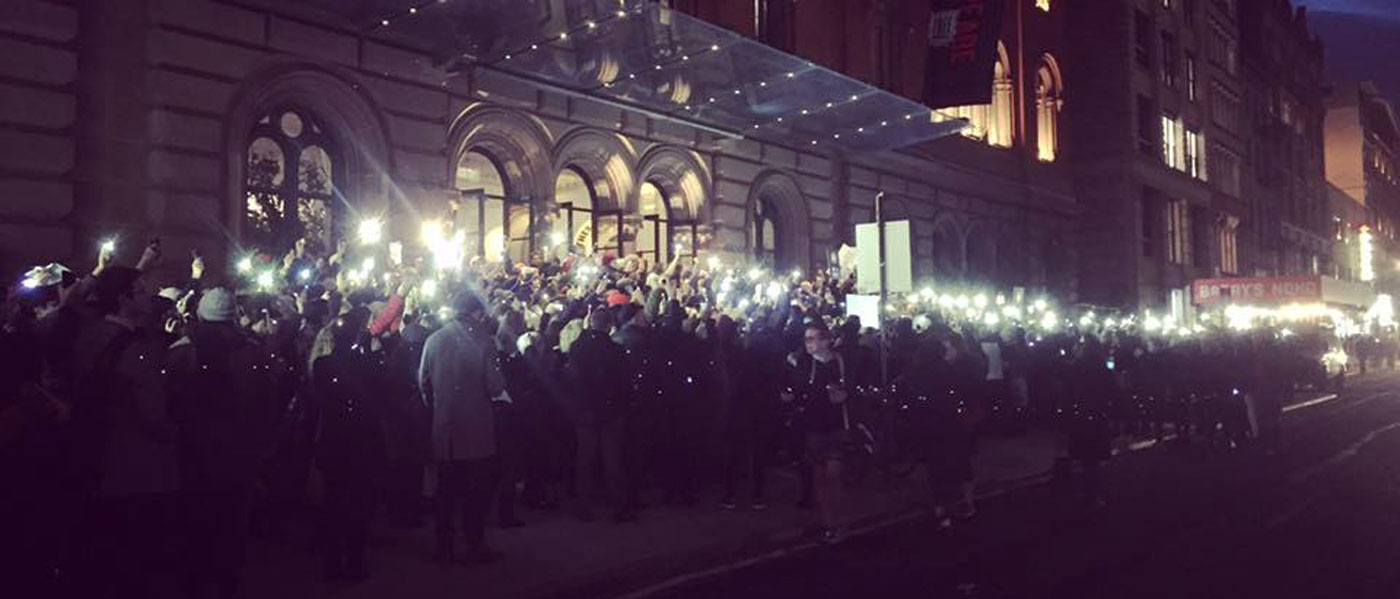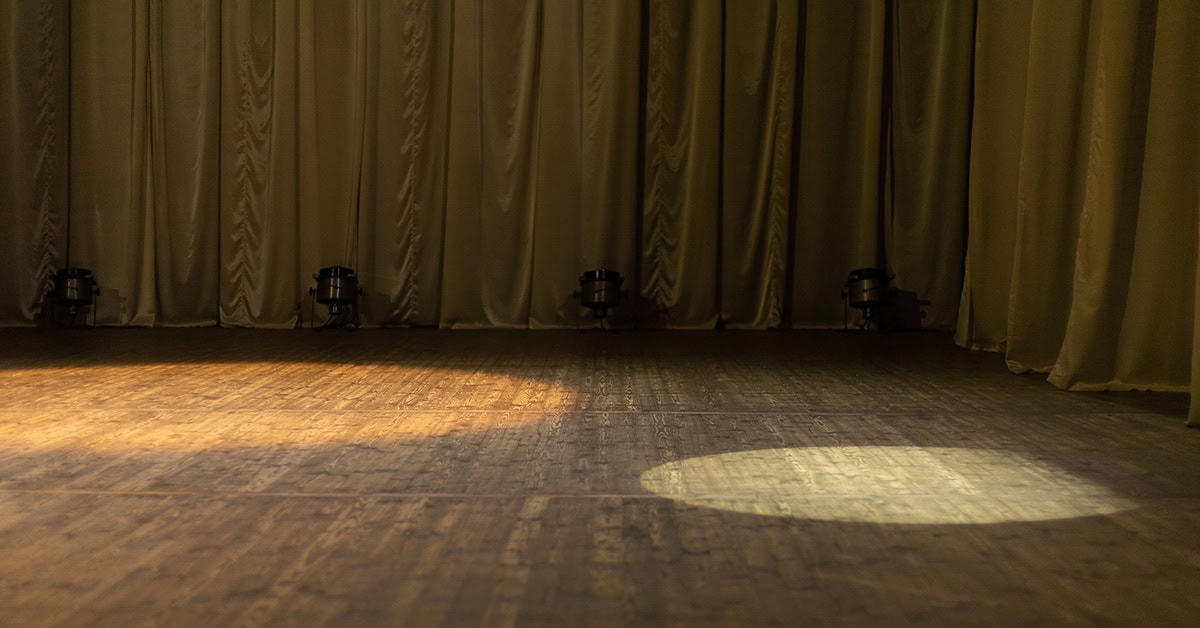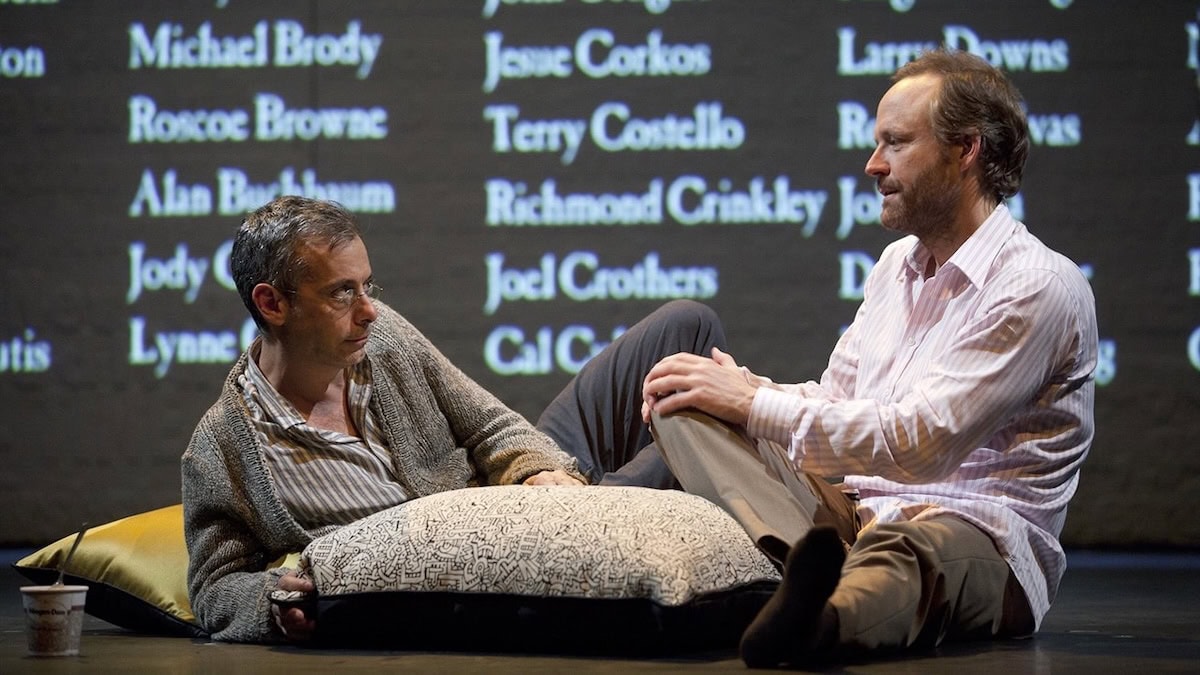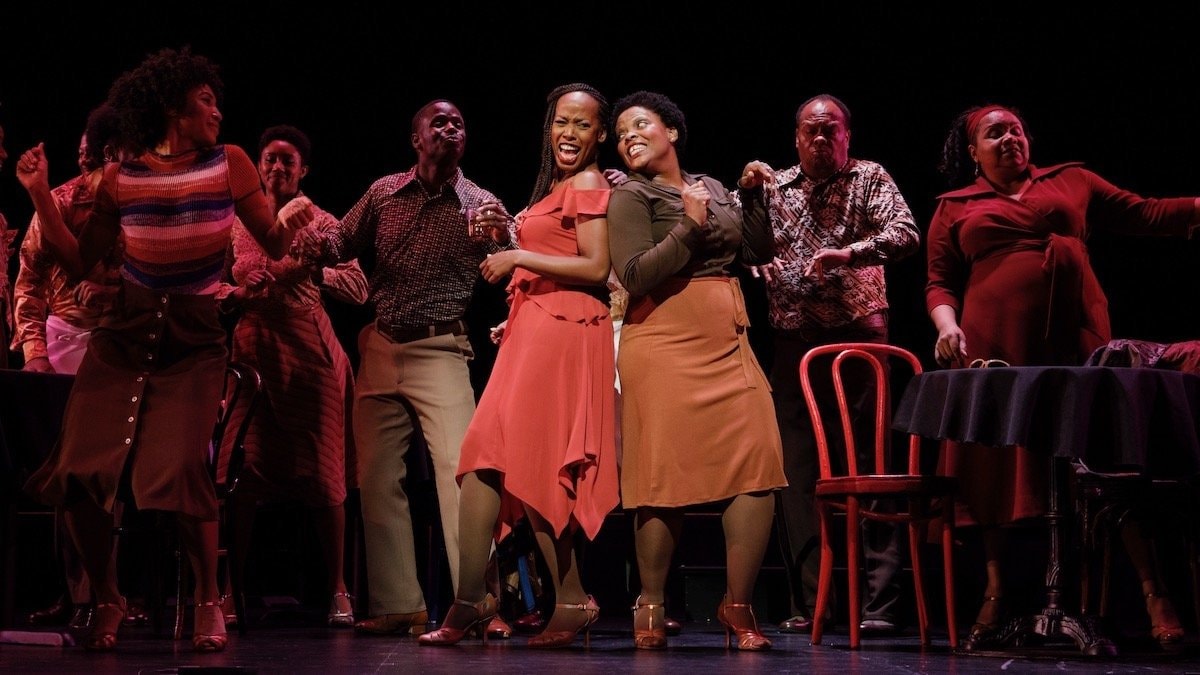
A lot of my students, right now, in 2017, are scared. A lot of that is the usual teenage concern about not fitting in, the changes in their bodies and the like, but lately something is definitely different. There’s an edge to the fear my students are feeling. I know because I feel it too. I am a British-born high school theatre teacher in America, I witnessed the results of the UK referendum to leave Europe, and then, well, November, USA happened. A consistent thread of these populist movements is the apparent normalization of being openly hostile to minorities, specifically people who are non-white. This may seem like a broad generalization, but it is true that the day after the UK referendum, anti-immigrant sentiment was on virulent display via graffiti and multiple other forms of media, with one shining example being: “We voted leave, it’s time for you to do the same,” with “No more Polish vermin” added for good measure.
I heard about the Ghostlight Project a few days before it went live. The Ghostlight Project is an initiative started by a collective of playwrights, actors, and other theatre professionals to “create a ‘light’ for dark times and to make, or renew, a pledge to stand for and protect the values of inclusion, participation, and compassion for everyone regardless of race, class, religion, country of origin, immigration status, (dis)ability, age, gender identity, or sexual orientation.” I considered having my class participate, but decided against it; the timing was just too close not to be considered a political act, and I had to factor in my administration. I don’t always see eye to eye with my administration. To me, theatre is a powerful educational tool just as much as it is entertainment; a vehicle in which to hold the mirror up to nature and explore the world as it is and as it could be. Knowing the push-back I would receive should I wish to participate in the Ghostlight Project’s event on January 19 pushed me into a corner of self-censorship. It’s too political, I don’t want us to be pushing a “gay agenda,” I don’t want to get any parent phone calls saying you’re telling them your political opinions, yadda yadda blah blah.
So I decided not to raise the subject at all with my students. But it stayed with me, nagging at me, my conscience nudging me and probing me, forcing me to ask myself whether I was making the right choice. A week passed, and a discussion was started by a member of the Educational Theatre Association’s online community about the Ghostlight Project. I shared my position and read some other responses, but was moved especially by a comment from George F. Ledo. He wrote, “While I agree that schools themselves ‘should not,’ as institutions, take sides in politics, I also feel that they should educate their students…about the principle of free speech.” Somewhat hangdog and feeling not a little guilty, I went back on my decision and decided to introduce the Ghostlight Project to my students from the perspective of what the theatre has traditionally been about, and what it means to be a safe or, in the Ghostlight parlance, a “brave” space.
When I taught the lesson at my high school, the material came with a heavy disclaimer that we were not getting into a political discussion per se; rather, the discussions for the day could lean toward ideas and thoughts that could be considered by their very context to be political speech. I made sure to emphasize that our discussions were not about who the president was, or what his administration was apparently for. The important question I posed to my students was what do they, what does our theatre program, stand for? From that starting point, we spent two days talking about inclusivity and diversity, and my eyes were opened in many ways by what my students were feeling, and how they perceived the world: they agreed that theatre shouldn’t be dumbed-down, that theatre is a low-key way of making pointed political statements and providing commentary on the state of the world, and that far from being the much-touted super-tolerant generation, there are many of their peers with whom they are afraid of sharing their sexual orientations or identities.
It was quite refreshing to hear so many students talk about their feelings of security and safety within our school’s theatre community, and that they know they have a place where they can be gay, straight, male, female, non-binary, white, black, brown, mentally ill, Christian, atheist, Muslim, undocumented, and so on, without feeling judged. We found our space to be a place where politics could be discussed rationally, with opposing viewpoints listened to and respected, as opposed to just airing views in the echo chamber of social media algorithms. Ultimately, several different theatre classes came to the same conclusion: that there is an inherent strength in recognizing and celebrating our differences, and that unity does not mean agreeing with everybody’s opinions all the time.
This discussion led neatly into the students declaring who they were and what they pledged to fight for. Through these discussions, students realized what they ultimately felt strongly about. Many of my female students, regardless of their views on abortion, declared their passion for bodily autonomy. A handful of my students come from privileged backgrounds, and pledged to fight for those who were unable to defend themselves. A range of pledges and opinions were shared as the culminating activity, after which we took time to display the pledges in the backstage area of our school’s auditorium, where students now see a daily reminder of what they vowed to fight for.
This lesson was completed a few weeks ago, and many students have started telling me how they are trying to further their pledges and “do something good” for others. They’ve started exploring auxiliary resources offered by the Ghostlight Project to help further their advocacy — finding out about local groups or associations that need help or have additional information on what to do next. Rather than feeling afraid about the current political climate, many of my students are energized as they turn to face the world head-on. Even their scene work selections have demonstrated the desire to dig deeper into theatre’s power to send a message — they’ve been exploring multi-layered pieces containing political subtexts (gender inequality, race problems within the U.S., etc.), and overtly political plays such as All the Way by Robert Schenkkan.
As we embark upon the new year, I am personally grateful for what the Ghostlight Project has given me: a reminder to be the light in a dark world. Fear has to be combated; fear lives in the darkness. That light in the darkness represents, ultimately, the opposite of fear: that light, ultimately, is hope.
To find out more about The Ghostlight Project, as well as their upcoming events, click here.

Recommended Shows for Drama Festivals

The Truth Behind… The Normal Heart

